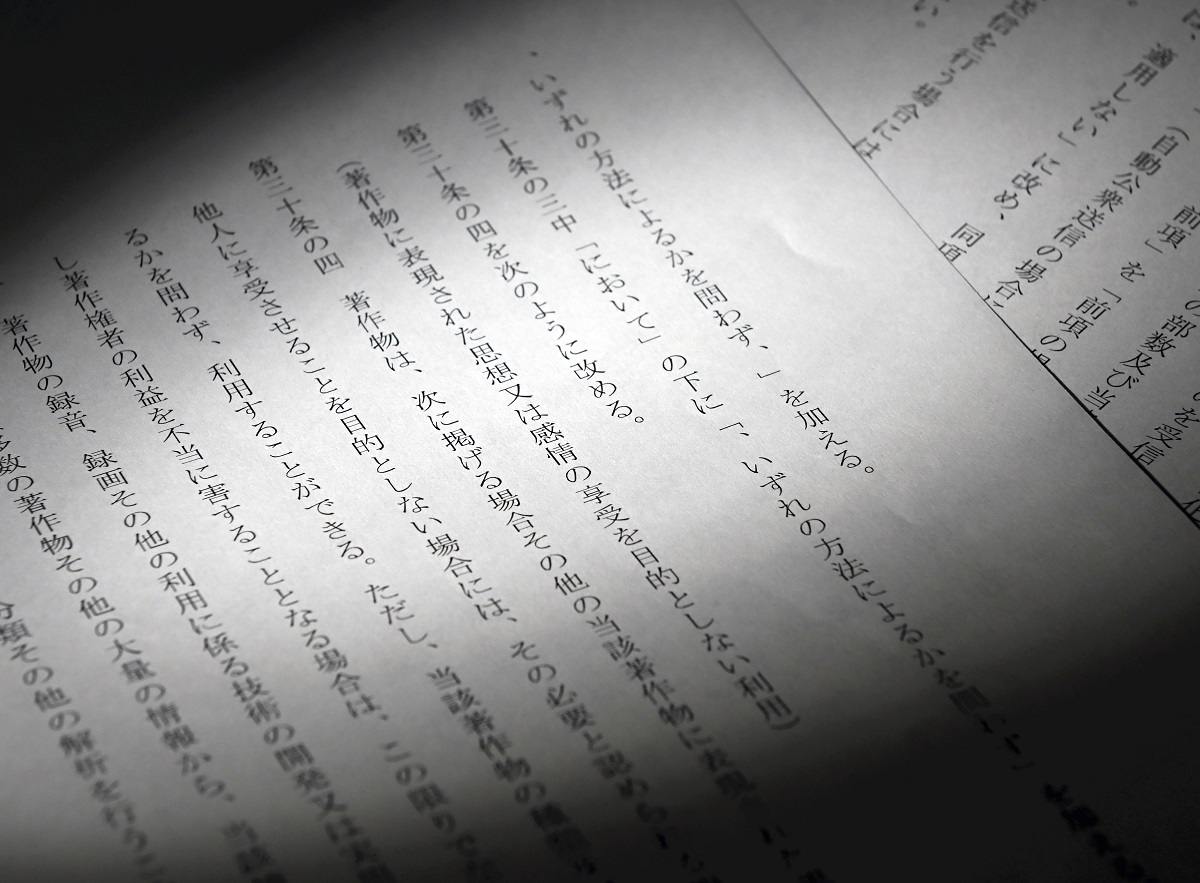
Article 30 of the Copyright Law
6:00 JST, August 19, 2023
The Japan Newspaper Publishers & Editors Association (NSK) and other organizations issued Thursday a joint statement calling for discussing measures for copyright protection from generative artificial intelligence, citing a high risk of infringement of the rights of right holders.
According to the statement, Japan’s Copyright Law is extremely permissive regarding AI learning compared to the laws of other countries, while relief measures for copyright owners are insufficient. For these reasons, the statement insists that a forum should be created to examine the need to revise the law while exchanging opinions on copyright protection between rights-holding organizations and relevant authorities.
The joint statement was issued by the NSK, the Japan Magazine Publishers Association, the Japan Photographic Copyright Association and the Japan Book Publishers Association. In many cases, generative AI is said to learn from large amounts of data on the Internet without obtaining permission from copyright owners or paying compensation to them and then automatically creating texts and images. Article 30 (4) of the Copyright Law provides that it is permissible to exploit a copyrighted work if it is done for use in data analysis including AI machine learning.
According to the statement, while the law does not allow the use of data for machine learning if the action would unreasonably prejudice the interests of the copyright owner, the interpretation of the provision is unclear. In addition, the law does not ban the use of pirated works for machine learning. The statement views the situation as a problem and also points out that, while there is concern that massive amounts of potentially copyright-infringing content are being distributed, no effective relief measures have been presented for copyright owners.
The statement complains that generative AI could possibly hinder cultural development, because generative AI could result in: (1) the loss of opportunities to create works, making it difficult to pursue writing activities; (2) the development and creation of unethical AI using illegal content; and (3) the possibility of AI users violating rights without knowing it.
The statement proposes that there is a need to clarify in what cases AI should not learn data and determine the necessity to revise the Copyright Law. It insists that copyright protection measures should be discussed to have them catch up with technological development.
Concerns are growing among creators over the violation of their rights. Since June, the Cultural Affairs Agency has been holding discussions to sort out issues concerning copyright, including the provisions of the law related to AI learning.
Top Articles in Society
-

Producer Behind Pop Group XG Arrested for Cocaine Possession
-

Man Infected with Measles Reportedly Dined at Restaurant in Tokyo Station
-

Man Infected with Measles May Have Come in Contact with Many People in Tokyo, Went to Store, Restaurant Around When Symptoms Emerged
-

Woman with Measles Visited Hospital in Tokyo Multiple Times Before Being Diagnosed with Disease
-

Australian Woman Dies After Mishap on Ski Lift in Nagano Prefecture
JN ACCESS RANKING
-

Producer Behind Pop Group XG Arrested for Cocaine Possession
-

Japan PM Takaichi’s Cabinet Resigns en Masse
-

Man Infected with Measles Reportedly Dined at Restaurant in Tokyo Station
-

Israeli Ambassador to Japan Speaks about Japan’s Role in the Reconstruction of Gaza
-

Videos Plagiarized, Reposted with False Subtitles Claiming ‘Ryukyu Belongs to China’; Anti-China False Information Also Posted in Japan
























